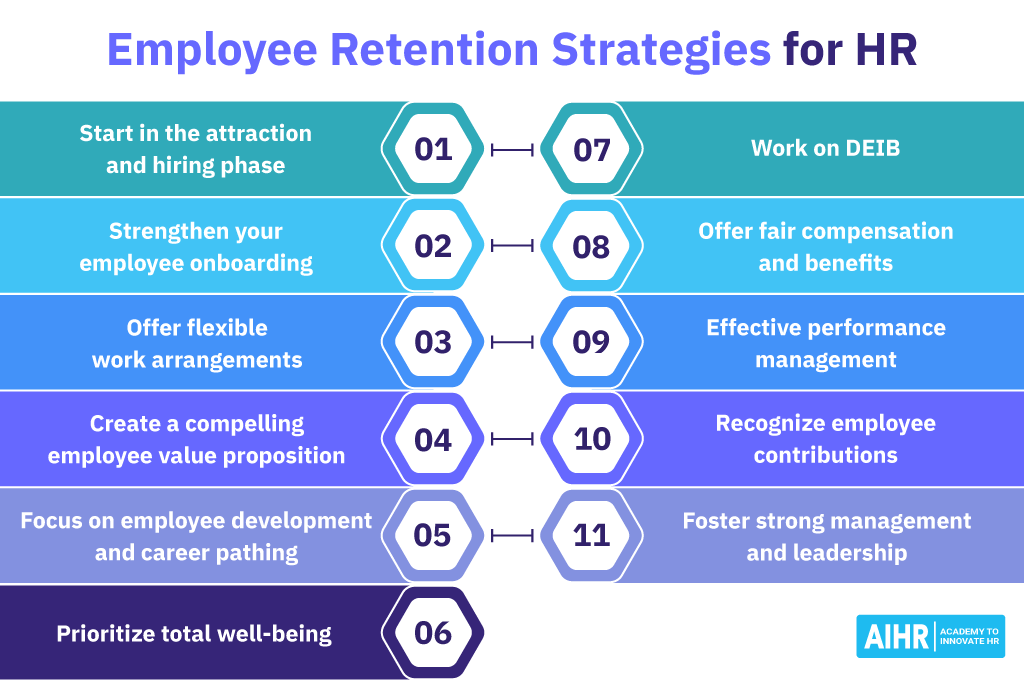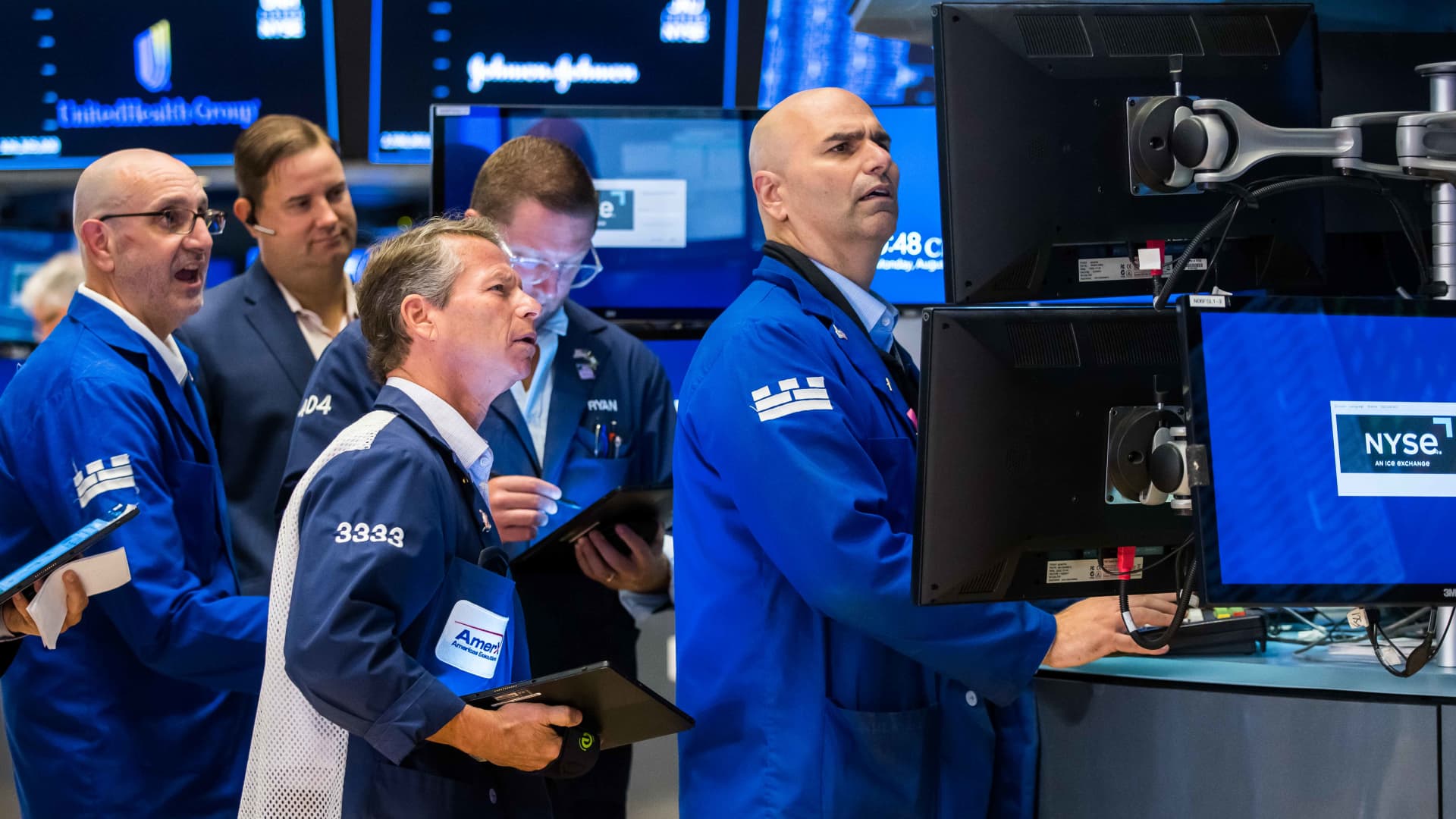Why Middle Managers Matter: Improving Company Culture And Employee Retention

Table of Contents
The Bridge Between Leadership and Employees
Middle managers act as the crucial link, translating high-level strategies and business objectives into actionable goals and tasks for their teams. They are the interpreters of the company's vision, ensuring that everyone understands their role in achieving overall success. This vital role significantly impacts employee engagement and overall team performance. Effective middle management facilitates a smooth flow of communication, minimizing misunderstandings and frustration.
- Effective communication minimizes misunderstandings and frustration. When communication is clear and consistent, employees feel valued and informed, leading to increased job satisfaction.
- They champion employee ideas and concerns, creating a two-way feedback loop. Middle managers act as advocates for their teams, ensuring that employee voices are heard and considered by upper management. This open communication fosters trust and psychological safety.
- They ensure consistent implementation of company values and policies. Middle managers are responsible for ensuring that company-wide initiatives are effectively translated into day-to-day operations, promoting consistency and adherence to company standards. This consistency strengthens workplace culture.
Fostering a Positive and Supportive Company Culture
Middle managers directly influence the day-to-day work experience for the majority of employees. Their leadership style and management techniques significantly shape the team's morale and productivity. A positive and supportive work environment isn't solely created through large-scale company initiatives; it's cultivated daily through the actions of middle managers. This directly impacts employee retention rates.
- Recognizing and rewarding employee contributions fosters motivation and loyalty. Simple acts of appreciation can significantly boost morale and increase employee commitment to the organization.
- Promoting teamwork and collaboration strengthens team cohesion. Middle managers should foster a collaborative environment where employees feel supported and encouraged to work together.
- Creating an inclusive and respectful work environment is critical for employee well-being. Middle managers must actively promote diversity and inclusion, ensuring that all employees feel valued and respected regardless of their background. This is crucial for improving employee retention rates.
- Addressing conflict effectively prevents negative impacts on morale and productivity. Middle managers must be equipped to handle workplace conflicts constructively, preventing escalation and protecting team morale.
Driving Employee Engagement and Reducing Turnover
Engaged employees are more productive, creative, and committed to the organization. They are less likely to leave their jobs, contributing to lower turnover rates and improved business outcomes. Middle managers play a pivotal role in fostering this engagement, building a strong relationship with each team member and ensuring their professional growth. Investing in strategies to improve employee engagement should be a top priority for HR and business leaders.
- Providing opportunities for professional development increases employee satisfaction and retention. Investing in employees' growth demonstrates commitment to their success and fosters loyalty.
- Offering regular feedback and mentorship helps employees grow and feel valued. Regular, constructive feedback helps employees understand their strengths and areas for improvement, improving their performance and boosting confidence.
- Delegating tasks appropriately and empowering employees boosts confidence and ownership. Empowerment improves morale and enhances the sense of responsibility among team members.
- Recognizing and celebrating achievements, both big and small, reinforces positive behavior. Acknowledging successes, no matter how small, reinforces positive contributions and encourages continued strong performance.
Investing in Middle Management Training
Equipping middle managers with the necessary leadership and management skills is not just beneficial; it's essential for a strong company culture and improved employee retention. Training should focus on developing crucial soft skills alongside modern management techniques. Investing in training programs provides a return on investment far exceeding the initial cost.
- Leadership training programs focusing on modern management techniques. These programs equip managers with the skills to effectively lead and motivate teams in a rapidly changing business environment.
- Workshops on fostering positive team dynamics and improving communication. These sessions focus on improving interpersonal communication and conflict resolution skills, essential for maintaining a positive work environment.
- Coaching and mentoring opportunities for continuous improvement. Providing access to experienced mentors and coaches allows middle managers to further develop their skills and address specific challenges.
- Regular performance reviews and feedback sessions for middle managers. Consistent feedback helps middle managers identify areas for improvement and strengthens their leadership capabilities.
Conclusion
The impact of middle managers on company culture and employee retention cannot be overstated. They are the linchpin connecting leadership and employees, shaping the day-to-day work environment and fostering a sense of belonging and purpose. By investing in training, providing support, and recognizing their crucial role, organizations can significantly improve their company culture and reduce employee turnover. Don't underestimate the power of effective middle management – it's a key ingredient to a thriving and successful organization. Invest in your middle managers and reap the rewards of improved employee retention and a flourishing company culture. Start building a stronger team today by focusing on your middle management's development and support.

Featured Posts
-
 Idf Captives In Gaza A Chronicle Of Their Experiences
May 26, 2025
Idf Captives In Gaza A Chronicle Of Their Experiences
May 26, 2025 -
 Ccmf 2025 Tickets Sold Out Plan For Next Year
May 26, 2025
Ccmf 2025 Tickets Sold Out Plan For Next Year
May 26, 2025 -
 Controverse Du Grand Cactus Le Csa A T Il Raison De Condamner Le Sketch
May 26, 2025
Controverse Du Grand Cactus Le Csa A T Il Raison De Condamner Le Sketch
May 26, 2025 -
 Why Investors Should Remain Calm Despite High Stock Market Valuations Bof A
May 26, 2025
Why Investors Should Remain Calm Despite High Stock Market Valuations Bof A
May 26, 2025 -
 Tzahrat Hashdt Fy Tl Abyb Llmtalbt Bitlaq Srah Alasra
May 26, 2025
Tzahrat Hashdt Fy Tl Abyb Llmtalbt Bitlaq Srah Alasra
May 26, 2025
